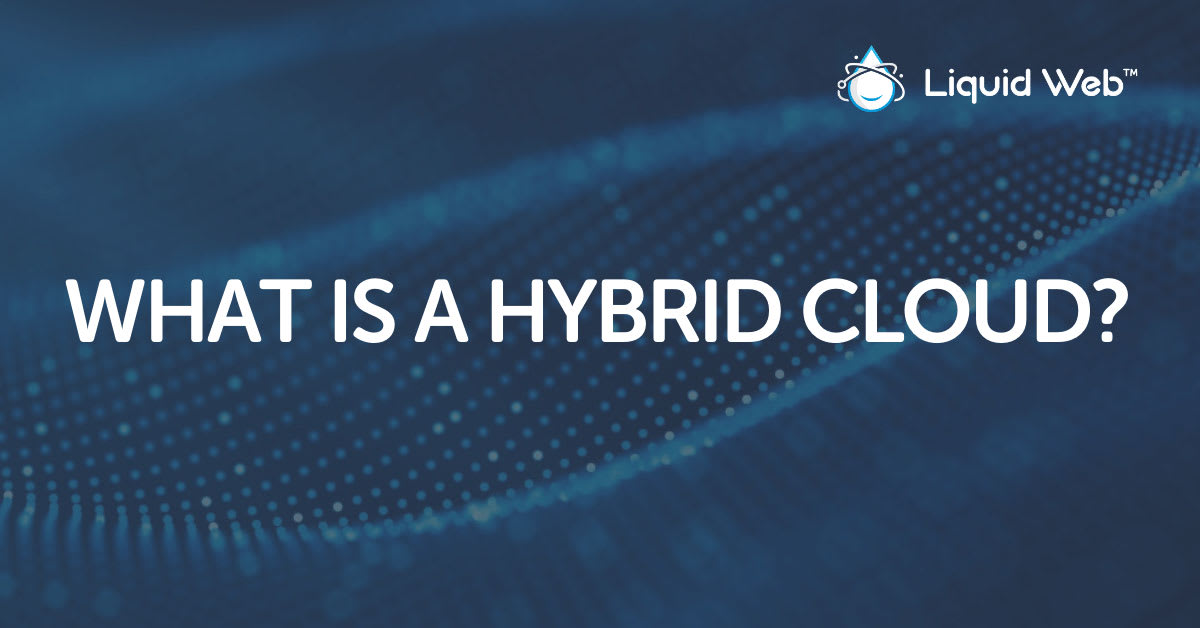
Wondering what a hybrid cloud is, the benefits of using one, and use cases for achieving optimum flexibility, scalability, and cost savings?
With the rapid pace of cloud adoption in the business sector, it’s never been more critical to understand how the cloud operates. Making sure your organization is getting the most it can out of the cloud may well be the most significant lever for growth in your toolbox. However, the myriad choices not just in your chosen cloud provider but also cloud configuration sometimes leave even the most seasoned CTOs and CIOs grasping to understand what’s best for their needs.
Thankfully, hybrid cloud deployments are relatively straightforward and easy to understand. In this post, we will examine what makes for a hybrid cloud, the benefits and drawbacks of this version of the cloud, and some use cases to provide a clear understanding of these cloud environments.
What is a Hybrid Cloud?
A hybrid cloud is a cloud deployment that utilizes both a private cloud and a public cloud as part of the same infrastructure. Software is used to ensure each service within the clouds communicates effectively and efficiently, helping orchestrate and manage both cloud instances.
By its very nature, a hybrid cloud is flexible and should deliver the best performance, security, and cost optimization possible for a business’s workloads. Notably, a hybrid cloud can also include on-premise or traditional hosting infrastructure as part of its configuration and setup.
Utilizing both public and private clouds typically happens when a business has specific requirements that can’t be addressed by using one or the other. For example, sometimes data in the financial space must be stored, by law, in a private cloud while a key application needs the public cloud’s scalability. Different use cases demand different cloud infrastructure, which is where hybrid clouds often come into service.

Benefits of a Hybrid Cloud
Flexibility is the name of the game when it comes to using a hybrid cloud. By combining public cloud, private cloud, and traditional infrastructure together, IT departments and engineers gain significant flexibility compared to utilizing only one type of infrastructure. The private cloud and traditional infrastructure allow organizations to manage and secure the critical components of their technology stack while also benefiting from public cloud technology’s scalability and high-performance of public cloud technology.
Deployments are also significantly impacted as businesses can leverage the burstable bandwidth and power of the public cloud in a matter of minutes. Without this capability, it would be left to the IT department to procure and spin-up new servers as needed. With the public cloud, a third party can handle such a task and provide ongoing maintenance and management.
Additionally, these types of clouds provide security that isn’t available when using only the public cloud. Within the private cloud portion of a hybrid cloud, organizations can be confident that no outside users can access privileged information or data.
Finally, cost optimization is a huge benefit when it comes to deploying both public and private clouds. Because public clouds are consumed in a pay-as-you-use business model, costs are more in line with actual usage. If only using a private cloud or traditional infrastructure, companies may be paying for idle resources not in use with the anticipation of needing them.
Limitations of a Hybrid Cloud
For all the power and flexibility found in a hybrid cloud, a few significant issues can potentially arise.
First, for all the anticipated future cost-savings, deploying a private cloud can get expensive. Having two or more types of infrastructure that must be configured and deployed in a way that allows them to work together is far more complicated than having a single type of environment to manage.
Next, while security in a hybrid cloud can be a significant benefit, it can also prove to be a pitfall if not properly monitored. Even with data encrypted in a private cloud, it will likely be accessed and utilized by the public cloud component at some point. Ensuring that the data is safe and secure not only when it makes it to the public cloud but also while it is being transmitted can be a challenge for some organizations.
Finally, future-proofing your public and private clouds for ongoing compatibility between all components can be a chore. Because you’ll have very little control over exactly how the public cloud component of your infrastructure is deployed and managed, you’ll have to work to make sure all integrations and interactions function properly. Even the slightest changes by a cloud provider can cause a disruption, just as subtle changes within your private cloud can make it incompatible with your public cloud instances.
Hybrid Cloud Use Cases
The most common use cases of a hybrid cloud is when data needs to be heavily protected (private cloud component) within a site or when an application needs the burstable bandwidth and scalability offered by the public cloud. The medical and financial sectors fall into this category quite often as private patient data or sensitive financial information must be stored differently than other forms of data.
Hybrid cloud environments also come in handy when running workloads privately but backing them up to the cloud. Using public cloud storage is more cost-effective in most cases. Plus, having backups stored outside of your own private infrastructure ensures that you have a reliable restore point safely stored elsewhere in the event of a disaster.
A hybrid cloud can also come in handy when resources and endpoints are distributed over a wide area in large company hosting. Consider logistics organizations or Internet of Things companies that have a large number of devices collecting and receiving data. Leveraging the wider distribution of the public cloud to facilitate the transmission of data is more cost-effective. It will result in superior performance, rather than tasking all of those devices with staying connected to a private cloud.
Is a Hybrid Cloud Right for you?
Choosing what infrastructure is best for your organization is a decision with lasting consequences. The current pace of digital transformation means that decisions made today about your cloud deployments will have far-reaching consequences for years. Whether you choose to incorporate managed cloud servers from Liquid Web or choose a public cloud provider like AWS, you must examine the benefits and drawbacks as they apply to your specific business.
Our team at Liquid Web has been a leader in the managed hosting and infrastructure sector for two decades. From VPS and dedicated hosting in the cloud to private cloud server hosting, our engineers and cloud architects can expertly work to design, deploy, and manage the right infrastructure for your business. Contact us to learn more about how Liquid Web’s cloud solutions can work for you.
[ad_2]
Source link







